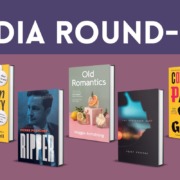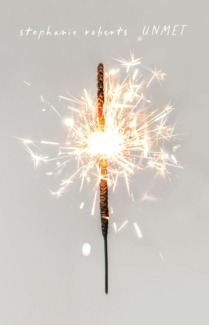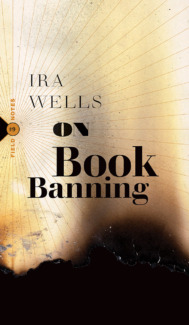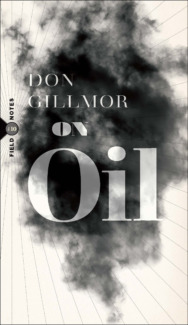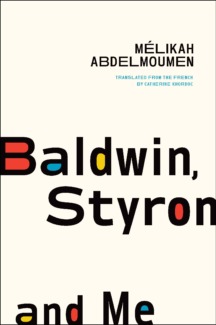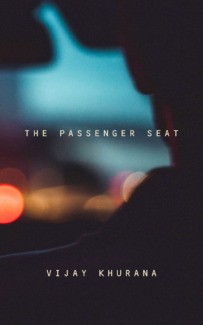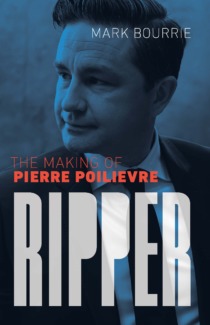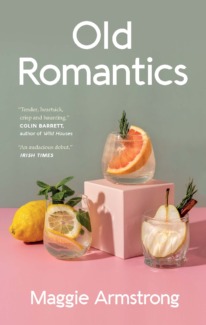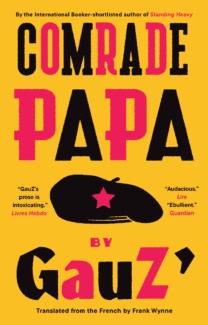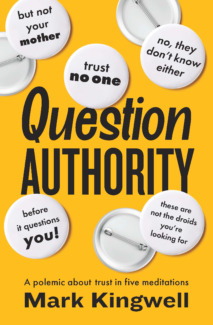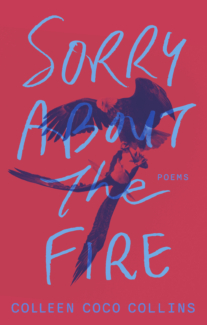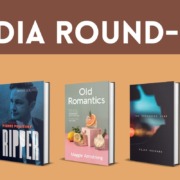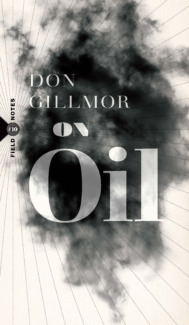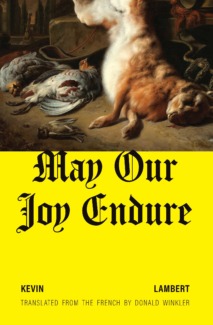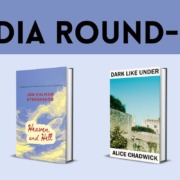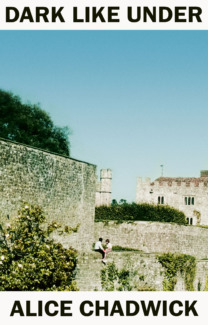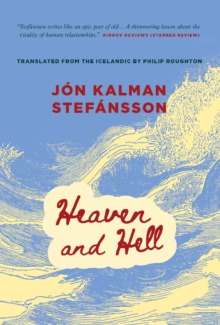Want to get new excerpts, musings, and more from The Bibliophile right away? Sign up for our weekly online newsletter here!
***
Next week, Vanessa will be attending the London Book Fair for the first time in my absence. I’m torn between relief and remorse, and excitement for Vanessa. I wish I could have been there for her first trip. Though the event itself happens in an inhuman environment, some kind of cross between an airport hanger and a processing plant, it’s nevertheless one of the most human-oriented of occasions. It’s both exhausting and invigorating. I will miss being there, jostling for floor space with my fellow indie publishers, raising a glass at the end of a long day with more of the same. Many of the people I’ve met through these fairs have become close friends and confidantes. I care about them deeply, and having missed Frankfurt in October I mourn that it’ll have been more than a year before I see any in person.
But I will also miss the raison d’etre for the fair: the books. The hunt for them, wandering the aisles and looking at what’s on display, flipping through the catalogues, listening intently to the enthusiastic pitches of those who care about what they publish as much as we care about what we do. The quickening that happens when you happen upon something unexpected, that might be a natural fit for our list. It’s a kind of magic. Many of the most important international books we’ve discovered have resulted from these fairs and from the relationships that they’ve helped cement: Lucy Ellmann’s Ducks, Newburyport, Roy Jacobsen’s Barrøy series, Elaine Feeney’s novels, the works of Jón Kalman Stefánsson. I learned about Roland Allen’s The Notebook spending a couple of hours strolling around Hampstead Heath as Mark Ellingham’s wolfhound loped pleasurably ahead of us through the grasses. It’s one of my favourite London memories.
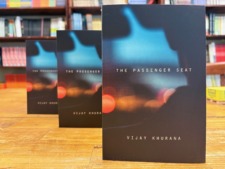
Photo: The Passenger Seat by Vijay Khurana. Designed by Zoe Norvell.
The discovery of Vijay Khurana’s The Passenger Seat didn’t occur in such an idyll: I first read it in a narrow bed in my discount Frankfurt hotel room in mid-October, 2023, shivering under the too-thin sheets. Or at least that’s when I read the first sixty or so pages: I hadn’t realized that the manuscript Vijay’s agent, Philip Gwyn Jones, had sent was incomplete, and was not at all pleased to have to turn out the light without knowing what happened next. I accosted Philip first thing the next morning when I got to the fairgrounds, begging him for the rest, so intent was I on what happened to (though their names were different in that iteration) Teddy and Adam.
Teddy and Adam have been with me ever since. “There are books,” George Orwell wrote, “that one reads over and over again, books that become part of the furniture of one’s mind,” and The Passenger Seat is one of these for me. It goes to deeply uncomfortable places in its examination of male friendship and identity and our relationship with violence. From its opening apocryphal Mailer epigraph (“When two men say hello on the street, one of them loses.”) to its final despondent sentence, it never looks away from the ugly vulnerability that propels us too often to do our worst. Using the frame of real-world events—the 2019 Bryer-Schmegelsky spree killings—it risks imagining what can never be known, and in doing so gets at truths that might not otherwise be possible. And it asks the reader what can be learned from two broken boys/men: up to now, too often, the answer has been not enough.
The Passenger Seat has been adopted enthusiastically by American booksellers, who have made it both an Indies Introduce and an Indie Next pick. Douglas Riggs of Bank Square Books called it “a plunge into a pitch-black abyss . . . (that) feels so real it may as well be a cursed memoir.” It launched this week with a New York Times review which called it “unsettling and powerful.” It is both of these things, and like the best books, will leave no one who risks its pages indifferent.
Please read on for an excellent interview with the author, conducted by Ahmed Abdalla.
Dan Wells,
Publisher
***
A Biblioasis Interview with Vijay Khurana
Could you tell me a little about yourself and how this novel came about?
I’m a fiction writer and translator from Germany. I was born in Australia but I’ve lived in quite a few different places. I’ve lived in the US, the UK, and Cambodia for about a year. But I’ve lived on and off for the last decade in Berlin.
This book’s genesis really came about when I was doing an MFA at the University of East Anglia. I noticed I was writing a lot of short stories about male friendships, and about the ways in which sexuality influences and shapes friendships among heterosexual young men and some of those stories included an aspect of violence, of young men dehumanizing those around them in various ways. I went from those short stories to looking at a larger piece of writing.
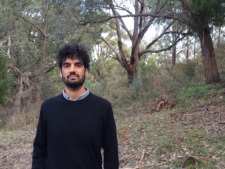
Photo: Vijay Khurana in the wilderness. Credit: Madeleine Watts.
I know it was partly influenced by true events. Could you speak about the relationship between fact and fiction and what made you want to write about this?
There was an incident I read about in North America where two young men did a similar thing to what I was thinking about. I was influenced by that, but also by those short stories that I had been writing. The book takes a few cues and images from real events. There’s a road trip aspect that is similar to some of the things I was reading about. There’s an image in the novel of Teddy and Adam using a digital camera and being obsessed with this idea of filming and experiencing the world through that medium of recorded video. That’s another thing that came from real events. Then the second part of the book is wholly fictional.
Why did you decide to call it The Passenger Seat?
It felt very much from early on that The Passenger Seat was the perfect title for this book. If you’re in the passenger seat, you’re not in control, and you’re also potentially not responsible for what happens in that vehicle. There’s this whole idea of passivity and abdication of responsibility that runs through the novel. There’s this question between Teddy and Adam of which one of them is actually in control and which one of them is responsible for the things they end up doing. One of the things I’m really interested in is to get at the idea that the male friendship itself is part of some of the problems with violence and dehumanizing among young men. But I think by the end of the novel, I’d like the reader to ask this question about why it’s called The Passenger Seat and what questions are there then about who was active and who was along for the ride. Who was culpable? And in what ways was everyone basically culpable?
There is a sharp shift in the narrative from the Teddy and Adam story to the Ron and Freeman one, where the former story ends unexpectedly. Both sections seem to be about men who don’t stop their friend from committing violence because of that idea of passivity and control. But one section is definitely much more violent than the other. How do you see these two sections as related and what are you trying to say by having them together in the novel?
In some ways I’m interested in asking what is the difference between the men that society tends to look at as being “essentially good” despite their faults and other men that society might deem to be so beyond understanding and so monstrous that they really have nothing to teach us. That we, the rest of society, are so unlike them that there is no redeeming them and there’s no sense that they might be able to teach us something about ourselves. The second part of the novel is exactly that, and it does have an element of Ron reflecting on a specific moment where his friend was committing domestic violence. He is pretty sure it’s happening, but he has sort of enough plausible deniability about the situation that he decided to not do anything about it. He asks himself about that and yet doesn’t really come to any conclusions about his own responsibility. I’m definitely comparing those two friendships and the ways in which the performance of masculinity itself can lead men, through the guise of friendship, to do things that are not productive, helpful or good.

Photo: Interior image from The Passenger Seat.
What do you think it means to perform masculinity and what does it reveal about the men in the novel? I’m thinking about all the references to audience and being watched. They seem to think a lot about how they will be perceived and what kind of man they want to be thought of.
In terms of trying to figure out what kind of man you are expected to be and what kind of man you might want to be when you are very young, it makes friendships you have with other young men really important. I think especially young men can only see themselves mediated through someone else. They can see themselves mediated through a friend, an enemy, through someone who’s envious of them, disgusted at them, through someone who, in a public space, perceives them as being disrespectful or threatening or going against some sort of social etiquette. This is something that happens a lot in various ways that may not be as stark as the ways in which I depict these characters, but performing in order to get a reflected sense of oneself is really common.
It’s also not just about performing masculinity as a way of understanding what kind of man you are, but it’s also about performing masculinity in terms of playing a role that you could see as absolving you from the consequences of your actions. If you’re just playing a role or playing a game or seeing yourself as a story, then it becomes easier to go through life without a sense that your actions have real consequences for other people. Hence there’s a lot of focus not just on that video camera, but also there’s a specific video game that these two young men play, which I’m not using to say that video games make young men violent, but it’s more that idea of mediation, of playing a role, of going through life as an avatar rather than as yourself.
And then also, the windshield itself, which I think has an interesting parallel with cinema. If you’re on a road trip, you’re looking through that windshield and everything you experience is mediated by the glass. You’re in the world, but you’re not really in the world, and that’s something else I was getting at.
That also makes me think of Adam’s refrain of “fun and games” whenever they’re together. It’s like all their actions are supposed to be taken as playful. So it further blurs reality and gameplay. They’re both in the world and not seriously in it.
And I think it’s also for him almost a defense mechanism at times. The way he feels he can get through life is to treat things as if they don’t really matter, especially at the beginning. It seems like something that he says to himself in order to help him cope with things not necessarily being in his control or to pretend that he’s okay with something that he finds challenging. But yes, game playing is absolutely a huge part of it. There’s even a line when they first start using the rifle, a comparison to how really young children will share their toys with pride and reluctance. That idea of playing games, using toys, is a big part of going through life when you are scrambling to work out what life is and who you are in it.
While Teddy and Adam are friends, a lot of their thoughts about each other seem to be comparing what the other has or lacks. Could you talk about the competitive aspect in male friendships and how this plays out in the novel?
There’s always this very fine line between play and competition. When something is played, it does not actually have an aim or a goal or an ambition. But once it becomes a game, then it might have rules, a goal, a winner, a loser. I think that competition is obviously a big part of how many young men have a sense of themselves, as a winner or a loser or someone who is good at something or not. It’s probably to some extent just human nature to contend with others, to want to best somebody at something, even something completely pointless. In the novel there’s a moment where they are perched on these fence posts beside a car park and they mess around for a while but then suddenly they are actually playing a game with a winner and a loser. They’re trying to hop from one to the other as many times as they can without falling. Or later they end up playing a game where they’re kicking an orange peel and trying to kick it as far as they can and further than the other one. Games for them are something they take refuge in as a language almost, as a way of communicating with each other, because they maybe lack more sophisticated ways of doing that. And of course they also take refuge in the idea of games once they have done something that is life-changingly tragic.

Learn more about Vijay Khurana and The Passenger Seat in another new interview with Open Book!
Violence seems to be a threshold that Teddy and Adam are building up to pass. We see them in different situations getting a bit more violent either with their words or their actions, trying to one up each other. But once Teddy does shoot those two people, a scene that is very drawn out in the novel, their relationship changes and also the rest of the violence happens off the page. How does that level of violence change them and their friendship?
One thing I was really conscious of with this novel is that I didn’t want to just “get inside the head” of someone who would do something like that because that would be to some extent a fool’s errand. But I think that I was trying to work out not just what these two characters would do after doing something extremely violent like that, but also what their relationship and the change in their relationship might say about other men or all men in general and how they would attempt to keep moving through space having done something like that.
They react in different ways. Teddy becomes increasingly passive and submissive almost as a way of dealing with what he’s done. Adam, for different reasons, tries to become much more dominant, while also at various times trying to treat what they did as a game, as something that didn’t really matter, and he has his own background and ideas that help him towards that position. After it happens, their relationship changes in a few ways. But for me, they’re both just hurtling towards the end of that section, which, if the reader doesn’t know it at the time, is essentially their deaths.
And why did you decide not to show the rest of their violent acts?
There are a couple of reasons. I was a journalist for a while and I worked in radio and have always been quite interested in the way that the media turns tragedy like this into its own kind of consumable narrative. So one reason is that I wanted to write some part of the novel from the point of view of a voracious media cycle, which is in the book as we get towards the end of the first section.
Another thing is that it was very difficult to write all these things and to write these characters who are in many ways just really terrible people doing really terrible things. I didn’t want to make the violence seem like page-turning excitement. In order to avoid that, and in order to concentrate on the ideas behind what was happening rather than the violence itself, having had a scene which I think had to be there, I didn’t want to then give more space on the page to violence that might just feel like it was for the sake of a narrative or anything like that.
What were you looking to say about how the media talks about male violence?
One of my main thoughts when I first started writing this is just how often this kind of thing happens. It just happens over and over and over again, and what I mean by “it” is young men, not always together, but often together with other young men, doing violent things. There is this idea that the media is fundamentally interested in certain things. The main one being trying to appeal to a lot of consumers of that medium, so it’s definitely going to create a narrative that suits its own aims and that combined with the fact that young men so often commit violent acts, I think that leads to quite an unnuanced depiction of some of these events. It’s often kind of lazy and emotionally manipulative in a way that is maybe unproductive for asking the really important questions, which is why does this keep happening? Why do we not seem to be learning anything from these repeated things happening?
I really enjoyed the rhythm of the book and how each sentence kind of flows nicely into the next as well as how the characters speak to each other and the language within their friendship. Could you speak about your style and how you decided to shape the novel?
Some of it is the sort of slightly taciturn rhythms of communications between male teenagers. Some of it is the rhythm of the road trip. There are rhythms to being in a car and driving down a highway or a road. So some of that I wanted to get into the prose. I like books where each sentence has its own kind of drama or tension. Or it might have a pleasing aspect if there’s some kind of alliteration in there or it might have a disharmonious or dissonant kind of quality as well. And the pace of a sentence also matters. The sounds of that sentence can reflect somebody’s state of mind or an action or the passing of time and how people’s experience of the passing of time is happening. There’s a whole lot of stuff that I really enjoy doing with a sentence.

Road trips in stories are usually associated with a desire to find something or change yourself, often a coming-of-age story. And this novel is kind of a coming-of-age story, just in a much darker sense. Do you have any thoughts about that?
I’m really interested in the paradoxes of the road trip. It tends to be about coming of age and becoming an adult to some extent. But at the same time, the road trip is so much about not actually engaging seriously and responsibly with the world around you, which we could understand to be a big part of adulthood. The very fact of just passing through different towns without properly stopping or engaging with them is like an abdication of adulthood.
I knew early on that I didn’t want their road trip to have a serious or specific goal. It sort of has these different goals but neither Teddy nor Adam properly commits to any of them. Adam has this idea that he might just leave home and never go back. He has this idea of maybe going and getting a job in a mine and completely leaving his old life behind. But you can tell that it’s still a childhood fantasy rather than actual ambition. There’s also that idea of running to something versus running from something and a lot of road trip narratives are a combination of both.
A road trip is about being completely free and wide open spaces, but it’s also about the utter claustrophobia of being stuck in a really small space often with someone else. It’s also about forcing a relationship to change under conditions of tiredness, or boredom, or whatever else. I also thought back to the road trips I took when I was around Teddy and Adam’s age. I thought a lot about the ways in which my friendships and relationships were impacted by those trips and some of the feelings of just what it was like to be in a vehicle. And I knew that the road trip was definitely what I wanted to use to explore those ideas about masculinity and violence.
We usually learn to be adults by watching our parents, but, for different reasons, both Teddy and Adam reject their fathers as figures to aspire to. Where do you think they get their ideas of masculinity and how does this affect them?
One of things I really wanted to avoid doing was telling a kind of trauma narrative where somebody does something terrible to somebody else and then you learn that they had had something terrible done to them. I didn’t want to tell a story where two young men don’t have father figures and therefore their manhood becomes twisted in such a way that it becomes polluted. But at the same time, they do both essentially turn away from their fathers. I wanted to get beyond the father figure, which is maybe the most obvious masculine example. I was more interested in getting at the many other examples that men see and emulate, including the male friend. I didn’t want to weigh things too heavily towards the idea of the father-son dynamic because that would have weighted the book in a very specific way. In fact, the idea of fatherhood is most present in the second section, when we find out that Ron has this fantasy that he could have been a stepfather if things had turned out differently, whereas in fact Ron never actually had the courage to commit to that role when he had the chance. It was kind of a game for him, too.
What are you hoping people take away from reading this novel?
I think I want them to read it again. I want them to feel like there might be undercurrents and links and things that a reader might not necessarily pick up on first read. Little ties between different characters, recurring images and things like that. And also that the experience of reading the prose will be a pleasurable one. I’m of two minds about saying “pleasurable” because the book is really not necessarily a pleasurable book. It’s about some quite disturbing stuff. But having said that, the idea of reading sentences and finding them to be in some way aesthetically interesting, is always part of reading, at least for me.
Also, I hope I am asking some interesting and difficult questions that the reader will be left saddled with after they’ve finished this book. I didn’t want to write a book where the problems that the book raises get resolved by the end. I wanted to write a book where people have to walk away holding all of that stuff in their head, holding those questions, juxtapositions and paradoxes. I hope readers might walk away asking some questions about the connections between friendship and violence and how men perform their masculinity in ways that often see them avoiding responsibility.
***
In good publicity news:

